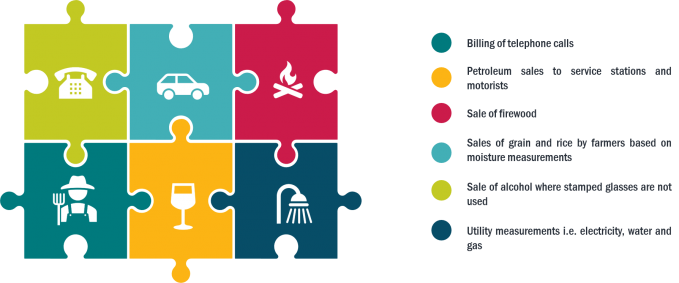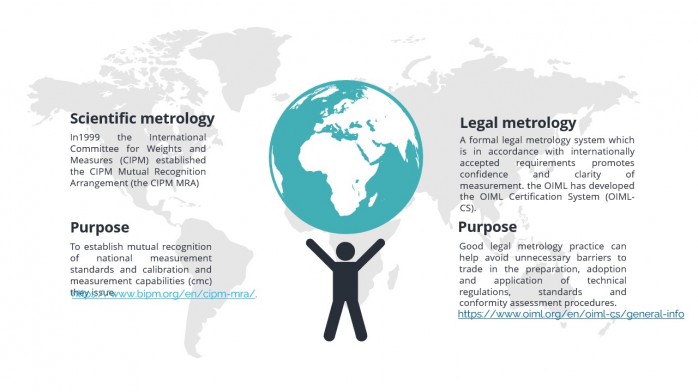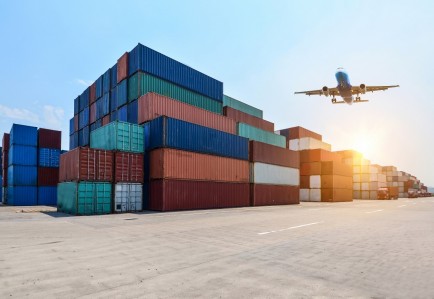How does metrology support trade?
Having metrological control lessens any unfair commercial advantage or trade practices. This ensures that trade measuring instruments are fit for their purpose and meet international standards. For example:
- In trade between economies, a small error in measurement can have a huge impact on costs because this often involves the exchange of large sums of money for goods. For example, a measurement error of just 1% in the amount of natural gas consumed in the world in a year results in economic losses of billions of dollars.
- Fuel dispensers at petrol stations are of an approved type and verified to make sure they deliver the correct amount of fuel to consumers.
Consumer protection
Measurement, and goods packed by measure, has generally replaced number and simple measures (bucket, plate etc.) as the basis of transaction for a wide range of consumer commodities and products. The increased consistency of these measurements, when adequately controlled, has significantly reduced disputation, and fraud and increased the efficiency of the marketplace.
Level playing field for commerce
Metrological control ensures fair trading by eliminating the use of short measure (provision of an amount less than what is declared or paid for) to obtain commercial advantage over competitors in the market place and, through Type or Pattern approval and certification, eliminates the manufacture and sale of many trade measuring instruments that are not fit-for-purpose and would not meet internationally recognised standards.
Effective stock control
The aggregation of trade measurements by individual businesses provides accurate and effective stock control to facilitate the ordering of new stock. This is a spill-over benefit of the trade measurement system.
(Source: www.freepik.com/tirachardz)

Control of fraud
As well as the control of fraud in the marketplace by State inspection, stock control by measurements can also provide effective fraud control for individual businesses.
Pattern approval and certification also ensures that the design of measuring instruments do not facilitate fraud.
(Source: www.freepik.com)

Reduced disputation and transaction costs
From its beginning measurement was recognised as a provider of objective information. However when used in trade transactions where the measurement process lacked transparency, and there was asymmetry of information between the trader providing the measurements and the trader accepting these measurements (usually the purchaser in retail transactions, the producer in farm produce transactions and the smaller business in commercial transactions) there was considerable scope for uncertainty, disputation, transaction costs and market inefficiency.
Typical examples of trade measurement transactions that may lack transparency and are difficult to check:

Full benefits for commodity exports
Export income from the sale by measure of bulk and prepacked commodities is a significant component of both export and income for many economies. Often for reasons of jurisdiction or lack of technical capability these measurements are not controlled by the State with a consequent risk of loss of national income through inaccurate measurement. Developing economies have even greater concerns. In trade contracts to meet the short measure requirement of trade contracts, commodity export economies give away value to the extent of the uncertainty of the measurement.
Reducing technical barriers to trade
Good metrology practice can help economies avoid unnecessary barriers to trade in preparing, adopting and applying technical regulations, standards and conformity assessment procedures.
As signatories to the inter-governmental treaties in measurement, the Metre Treaty for scientific metrology and the OIML Convention for legal metrology, governments enable access to the global frameworks for mutual recognition and acceptance of national measurement standards and capabilities as well as national regulatory frameworks in measurement.
These frameworks have been established to reduce technical barriers to trade and thereby support participation by governments in international Free Trade Agreements as well as provide the technical underpinning for business and industry to participate effectively in global markets.

Facilitating global trade
Metrology facilitates fair trade by enabling harmonised documentary standards, consistent measurement standards and internationally accepted certificates.
For example, it ensures that:
- Parts manufactured in one economy fit into machines in another economy;
- A device tested and approved for use in one economy may also be sold and used in another economy, without further technical inspections
- A pre-packaged product labelled with a ‘1 kg’ weight in one economy contains the same quantity of product as in another economy.
(Source: www.freepik.com)

Support of global trade in measuring instruments
The development of International Recommendations for the Type Approval (also known as Pattern Approval) of measuring instruments supports the global market for measuring instruments to internationally recognised standards.

